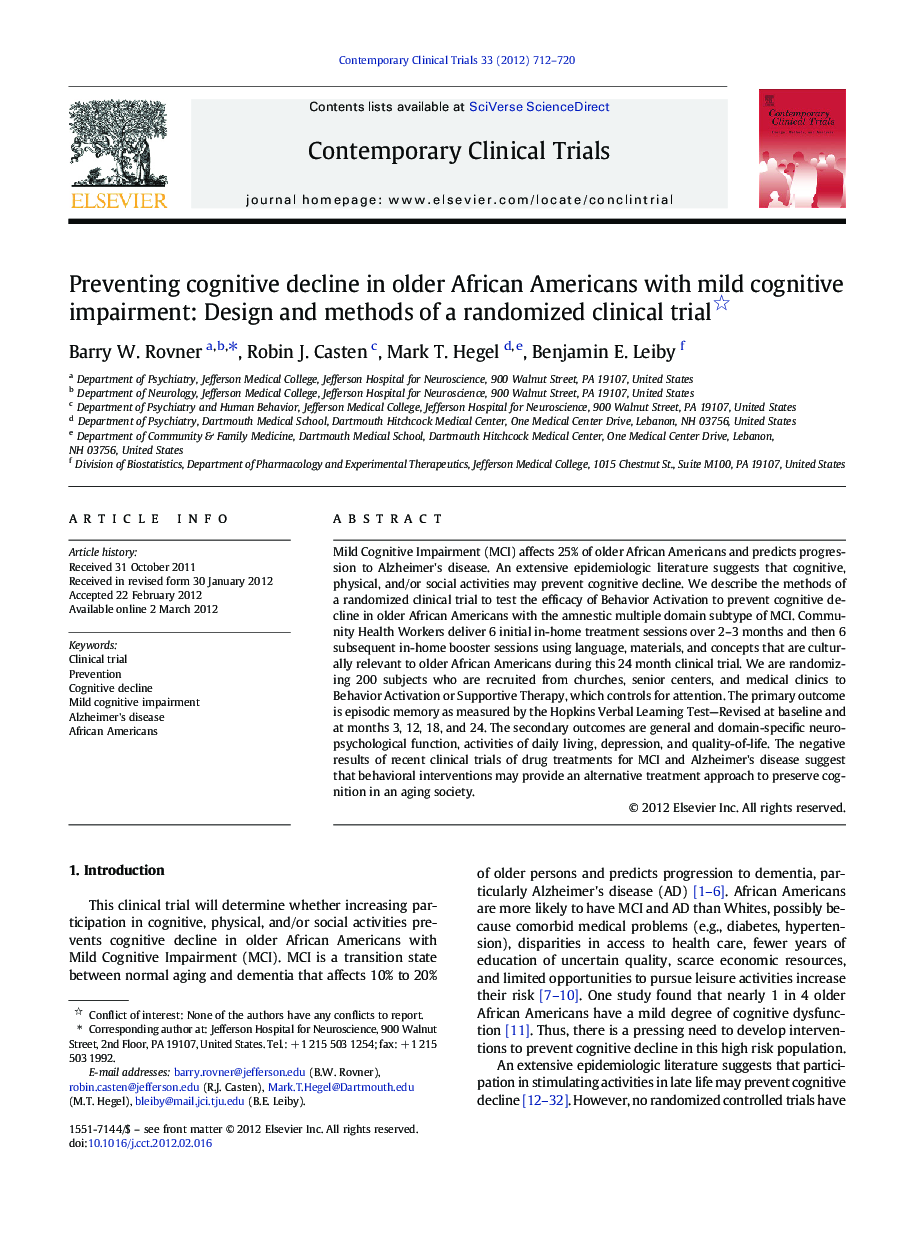| Article ID | Journal | Published Year | Pages | File Type |
|---|---|---|---|---|
| 3462906 | Contemporary Clinical Trials | 2012 | 9 Pages |
Mild Cognitive Impairment (MCI) affects 25% of older African Americans and predicts progression to Alzheimer's disease. An extensive epidemiologic literature suggests that cognitive, physical, and/or social activities may prevent cognitive decline. We describe the methods of a randomized clinical trial to test the efficacy of Behavior Activation to prevent cognitive decline in older African Americans with the amnestic multiple domain subtype of MCI. Community Health Workers deliver 6 initial in-home treatment sessions over 2–3 months and then 6 subsequent in-home booster sessions using language, materials, and concepts that are culturally relevant to older African Americans during this 24 month clinical trial. We are randomizing 200 subjects who are recruited from churches, senior centers, and medical clinics to Behavior Activation or Supportive Therapy, which controls for attention. The primary outcome is episodic memory as measured by the Hopkins Verbal Learning Test—Revised at baseline and at months 3, 12, 18, and 24. The secondary outcomes are general and domain-specific neuropsychological function, activities of daily living, depression, and quality-of-life. The negative results of recent clinical trials of drug treatments for MCI and Alzheimer's disease suggest that behavioral interventions may provide an alternative treatment approach to preserve cognition in an aging society.
